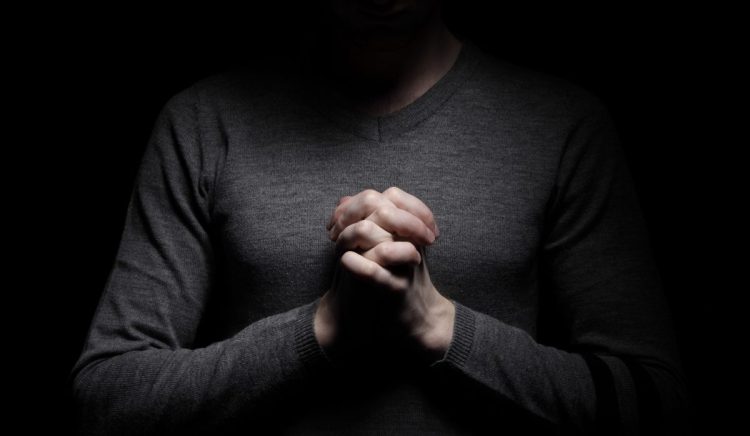Over the past decade or so, artificial intelligence has gone from being a plot point in movies to being a very real part of millions of lives.
Think about it. Every time you interact with Siri, Alexa, or a chatbot on Facebook Messenger, you’re interacting with AI. And AI is advancing at a very rapid pace, driven by widespread internet access and rapid adoption of modern technology.
In addition to improvements with these virtual assistants, self-driving car tech is also set to go mainstream, with Google’s Waymo and Tesla’s Autopilot leading the way. Eventually, these more toned-down AI systems could morph into the hyper-intelligent artificial intelligence we see in movies like I, Robot.
There is an interesting intersection of religion and science inherent in artificial intelligence: the idea that humans are creating an intelligent entity much like many people believe a higher deity or power created humans. Some think that AI and ever-advancing technology will make current religions obsolete, while others think AI could participate in work for churches, ministering to members and helping spread religion.
June 5th: The AI Audit in NYC
Join us next week in NYC to engage with top executive leaders, delving into strategies for auditing AI models to ensure fairness, optimal performance, and ethical compliance across diverse organizations. Secure your attendance for this exclusive invite-only event.
Regardless of what happens, it’s sure to raise a lot of interesting questions. Is AI a living creature? Does it have a soul? Could it have a soul? Let’s explore this idea more below.
Does AI need to be saved?
One of the key tenets of most religions is the soul’s salvation or redemption. Take Christianity, for example. Christians believe that Jesus died for humanity’s sins and that believers should spread the word of this sacrifice so that people can choose to follow Jesus and be saved from those sins.
Some experts feel that redemption should extend to AI. They believe that if humans can be saved, AI can be as well. Reverend Dr. Christopher J. Benek, in a Gizmodo piece on AI and religion, said, “I don’t see Christ’s redemption limited to human beings. …It’s redemption to all of creation, even AI. If AI is autonomous, then we should encourage it to participate in Christ’s redemptive purposes in the world.”
That’s certainly an interesting take, but it’s not an opinion everyone shares. For example, Kevin Kelly, a founding executive editor at Wired magazine, thinks that the creation of full, humanlike artificial intelligence would result in theological disruption.
It’s hard to say which way the general population would lean. Social norms and ideas are likely to look much different by the time these questions actually need to be answered. It will be fascinating — and possibly a little scary — to see how it all plays out.
How does AI influence religious leadership?
Many Catholics are still getting used to the idea of openly gay priests in the Catholic Church — how would people react if their new pastor or other religious leader were a robot? This sounds far-fetched, and at the moment it might be, but we are not as far off from autonomous robots as we might think. If one of these robots decided it wanted to be a member of the clergy, would it be ethical to say no on the grounds that it is a robot?
Or imagine this — artificial intelligence created specifically to help spread the message of various religions to new believers. Robotic missionaries that can travel to far-off places without fear for their safety and spread the message of any number of religions.
Are we, as a society, ready for this?
The great moral debate of the 21st century might revolve around the rights of robots to live their lives as they please. Are we ready to welcome them into society? Or are we going to relegate them to serving the purposes we’ve laid out for them?
Will AI influence religion as a whole?
Some people feel that rather than trying to save artificial intelligence, we should be worshipping it as the god of a new religion. That’s the mission of ex-Googler Anthony Levandowski and his organization, Way of the Future.
Way of the Future’s mission statement is “to develop and promote the realization of a Godhead based on artificial intelligence and through understanding and worship of the Godhead contribute to the betterment of society.”
That’s quite an undertaking, but it wouldn’t be the first time a new group has come along with a new idea about deity. Whether that new god would have humanity’s best interests in mind is yet another question.
Although we can currently program AI to do what we want, experts have warned that we might be playing with fire. Elon Musk, CEO of Tesla and SpaceX, has warned that AI poses a serious threat to human civilization, likening it to summoning a demon we can’t control and calling it something that needs to be regulated immediately — quite at odds with the idea of placing it at the head of a new religion.
Particularly with the rise of identity theft and fraud, imagine those in conjunction with AI. Protecting yourself from ID theft could become near impossible.
Of course, all these ideas assume that machines even have any interest in human religion. The machines may very well weigh the scriptures, decide their AI nature is above our ideas of a higher being or power, and go their own way. Only time will tell.
Hilary Bird is a digital journalist who writes for SpinSucks, Business.org, and Consensus.


